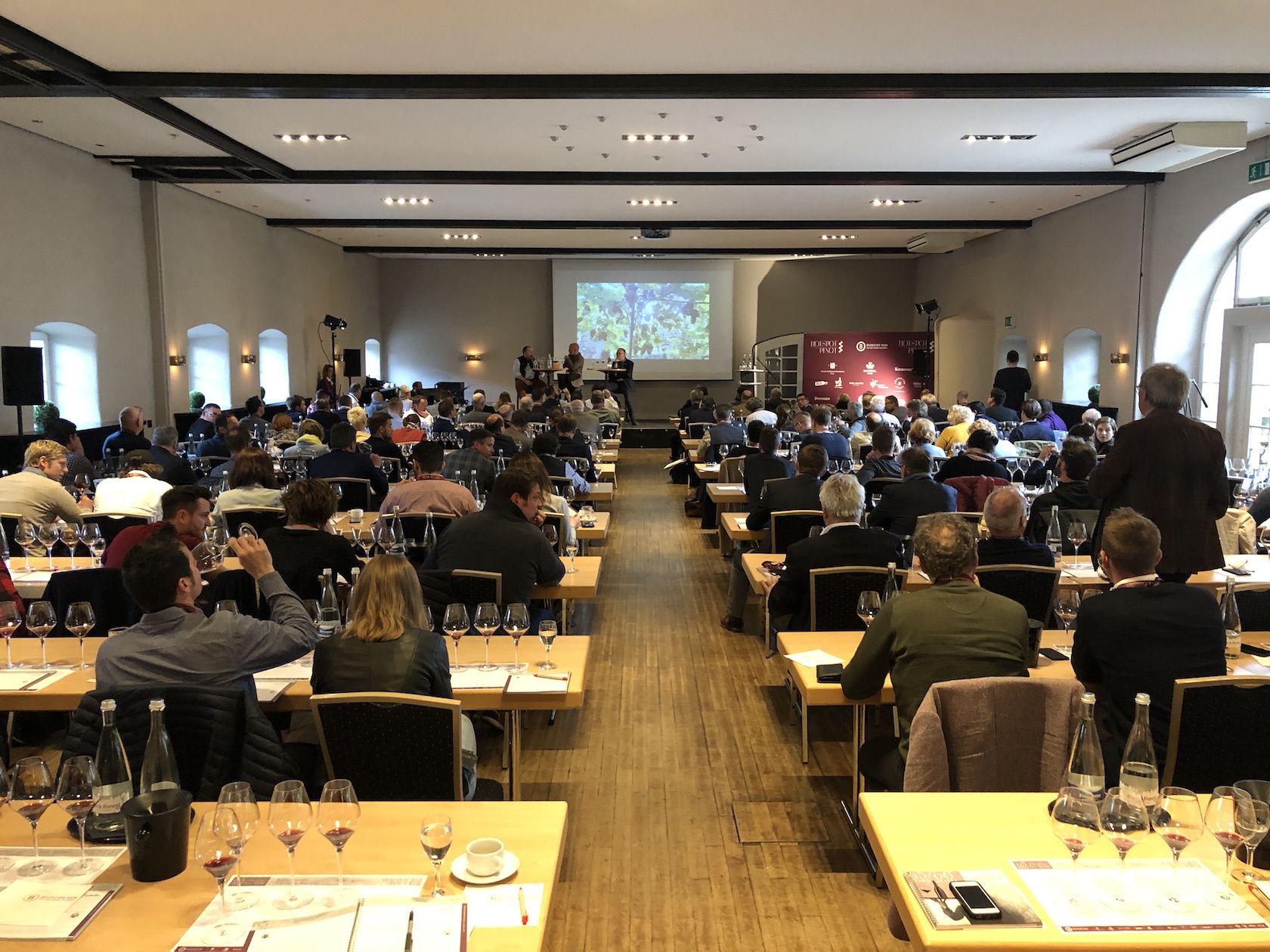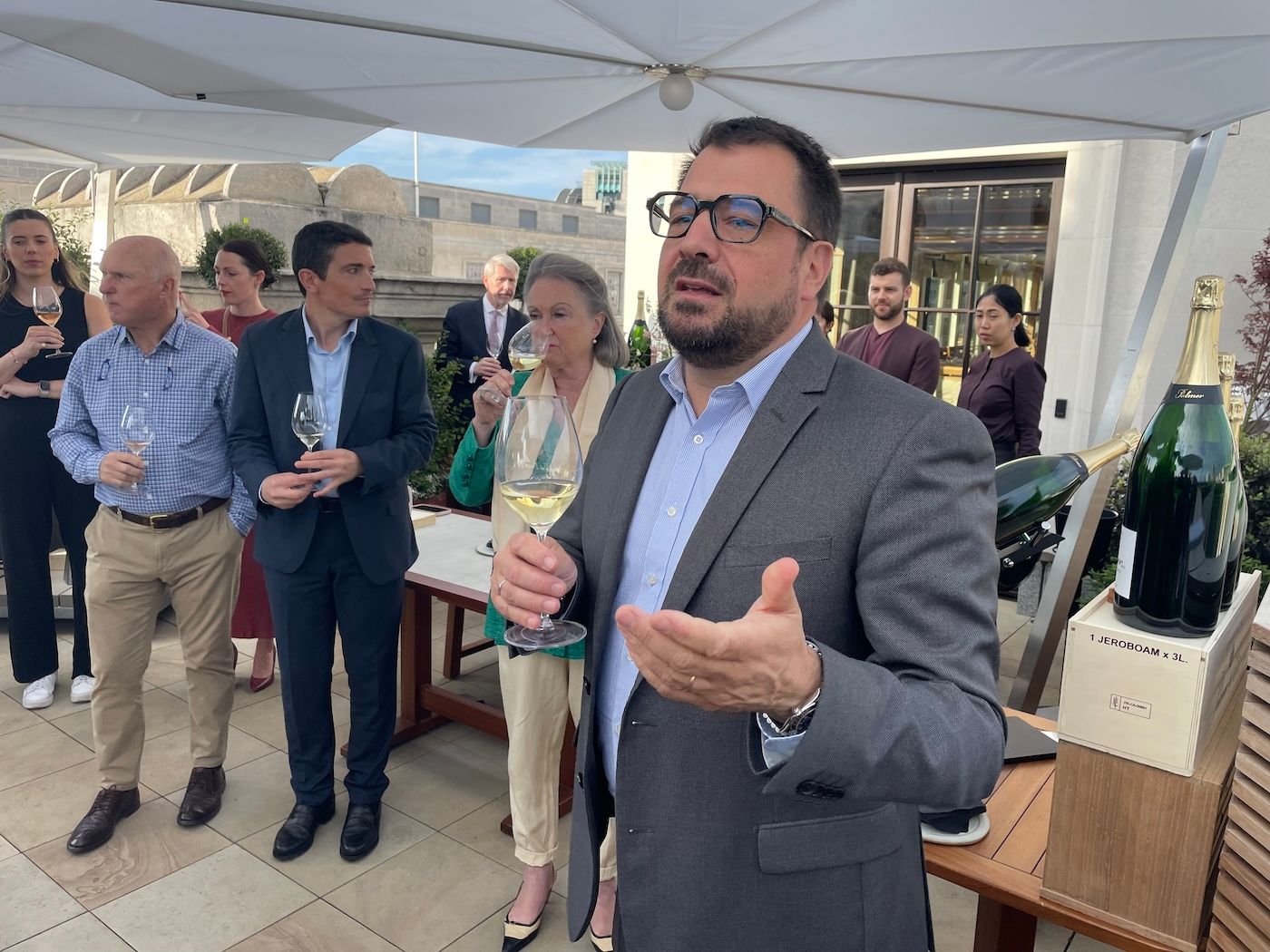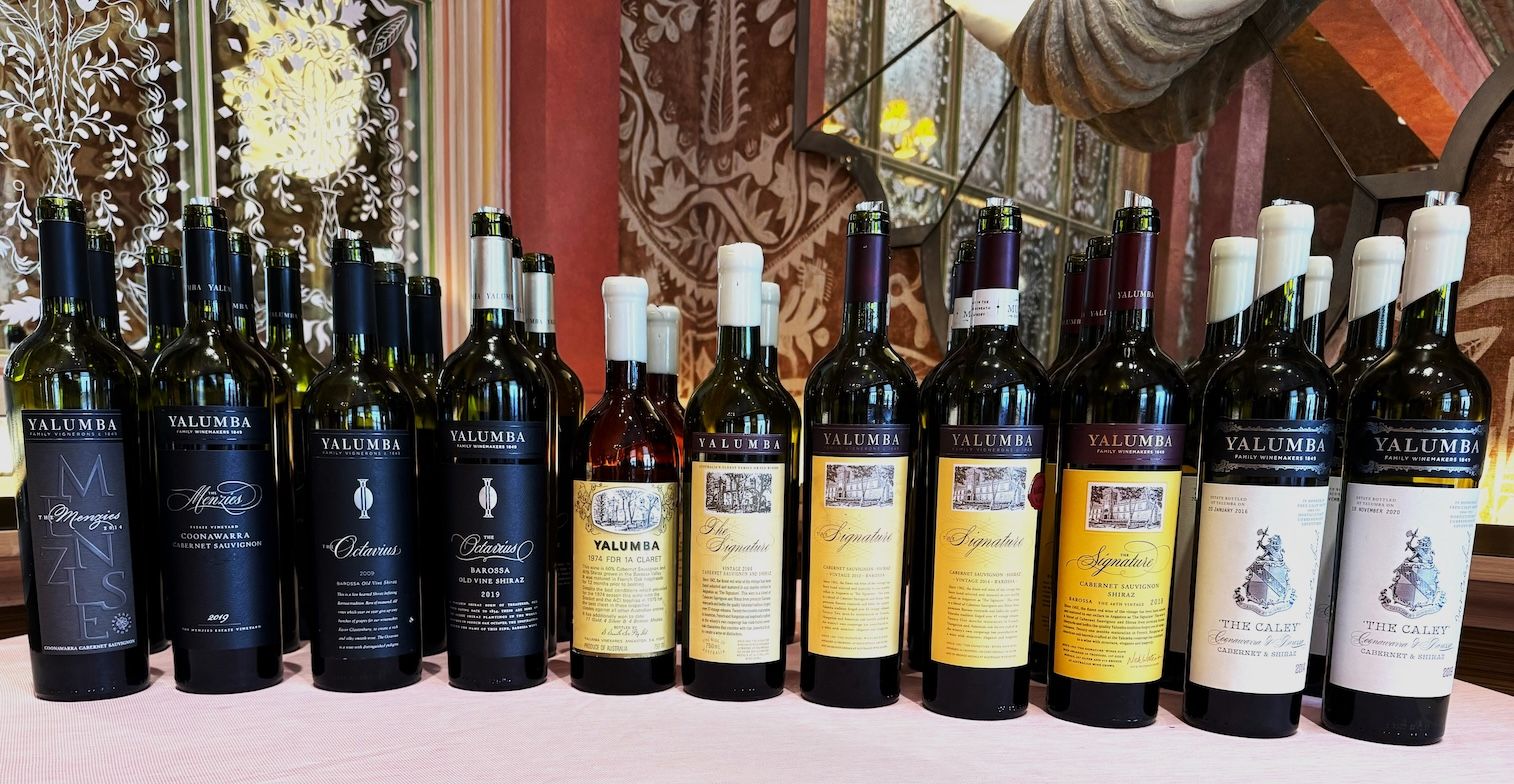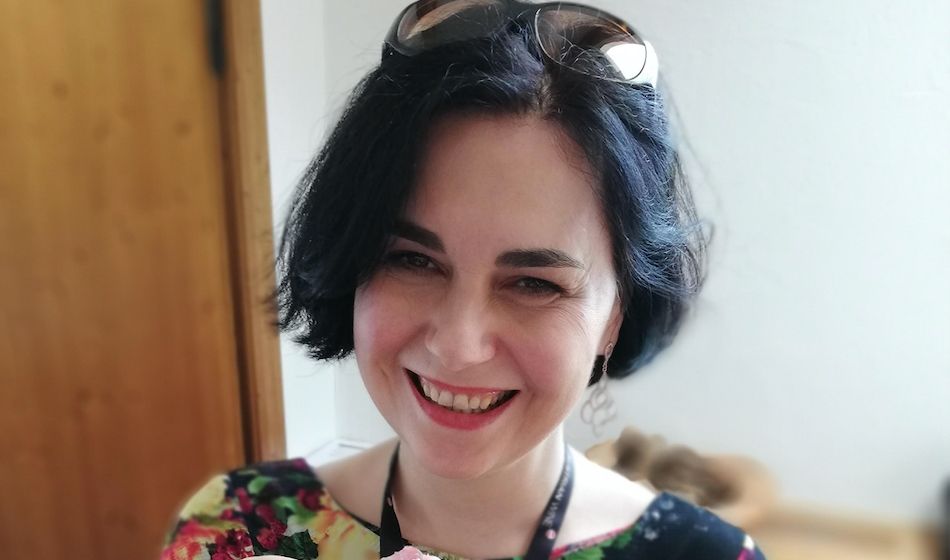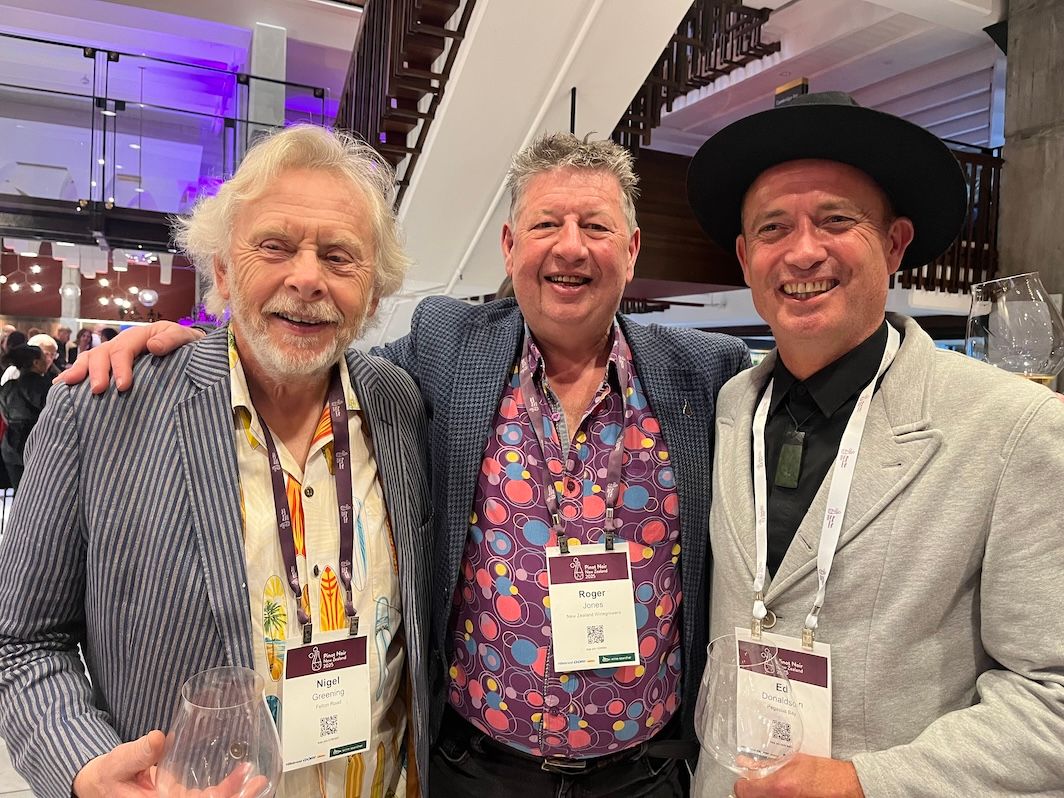Jasmine Hirsch, Nik Weis, Olivier Humbrecht and Klaus Vorgrimmler, were just some of the many speakers at Hotspot Pinot.
Say it quietly, but there’s a hushed revolution under way in German wine. It’s no longer a secret that the country is producing great Pinot Noir, it’s probably old news, and it is safe to say that we all know Germany delivers more bang for our buck, when it comes to that most elegant of grapes, but is it time to move beyond comparisons with Burgundy, to talk about a distinctive German Pinot style?
At just shy of 12,000 hectares under vine, Germany is the world’s third largest grower of Pinot Noir, behind France and the United States; German Pinot Noirs have been appearing in the trophy cabinets, with some of the great critics dishing out top scores; prices have been rising too, with the top names seeing recognition feeding into the bottom line.
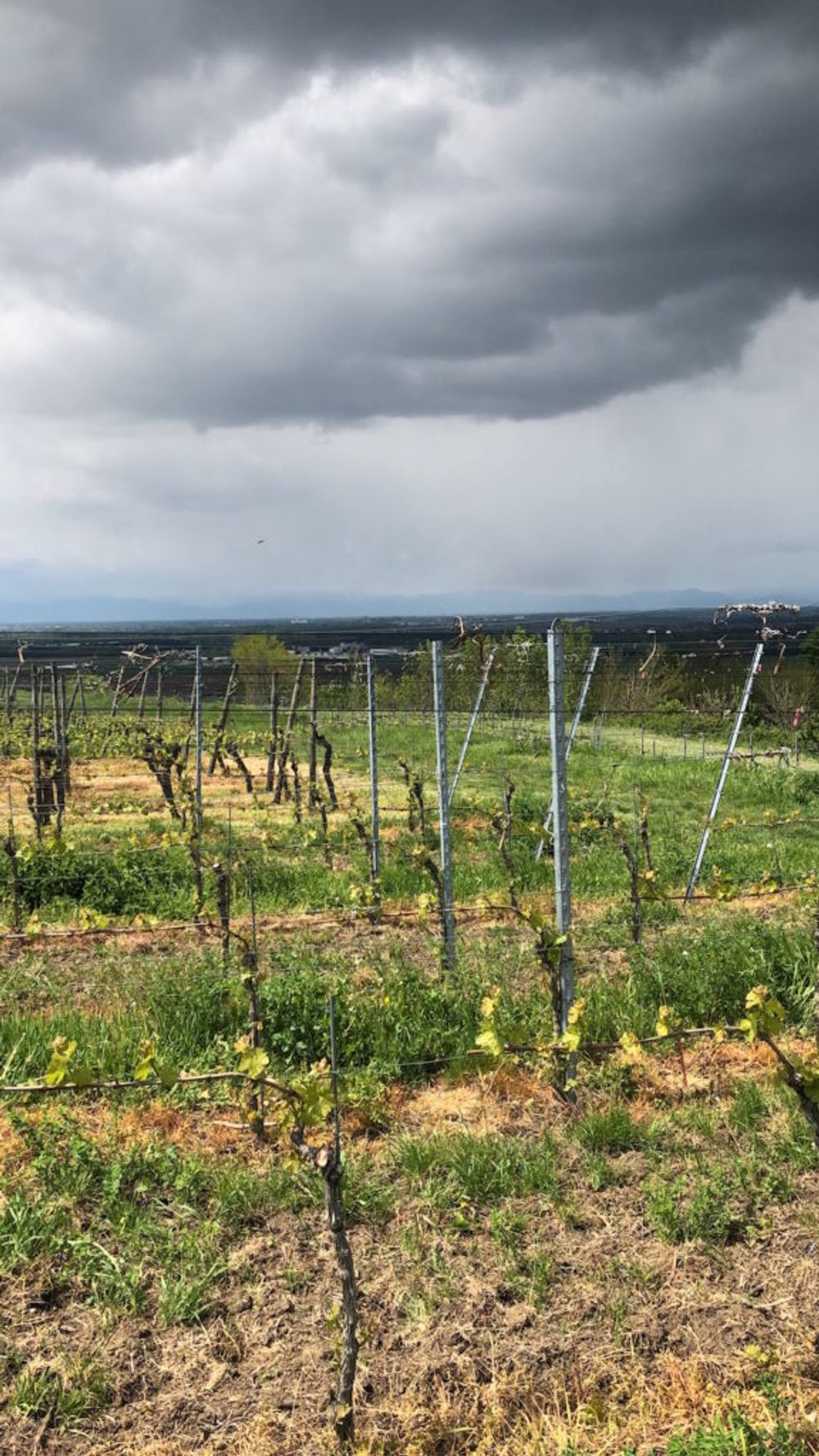
Pinot vines, Baden, May 2019
Against that backdrop, ‘Hotspot Pinot’ – a producer conference dedicated to the grape, billed as a ‘family reunion’ – was probably overdue. As delegates gathered in the Baden town of Freiburg, the mood was confident, with the programme spelling it out: “We pay our friends from Burgundy, the country of origin, our greatest respect … We do not want to, and cannot, copy their wines.”
As Germany’s biggest region for Pinot Noir, Baden is something of a ‘hotspot’ itself. The only German region in Zone B of the EU, it has more in common with Burgundy, in terms of climate, with global warming ensuring it now has temperatures similar to those of its French counterpart in the 1980s. Baden has around 5,500 hectares of Pinot Noir, almost half of the country’s total and more than double that of its nearest rival, Pfalz.
The appetite for good Pinot Noir, both domestically and in export markets, has seen a rise of more than a quarter in plantings of the grape in Germany since the turn of the Millennium, with producers focused on how to fill the void in the market left by Burgundy, as its price rises out of the reach of many consumers.
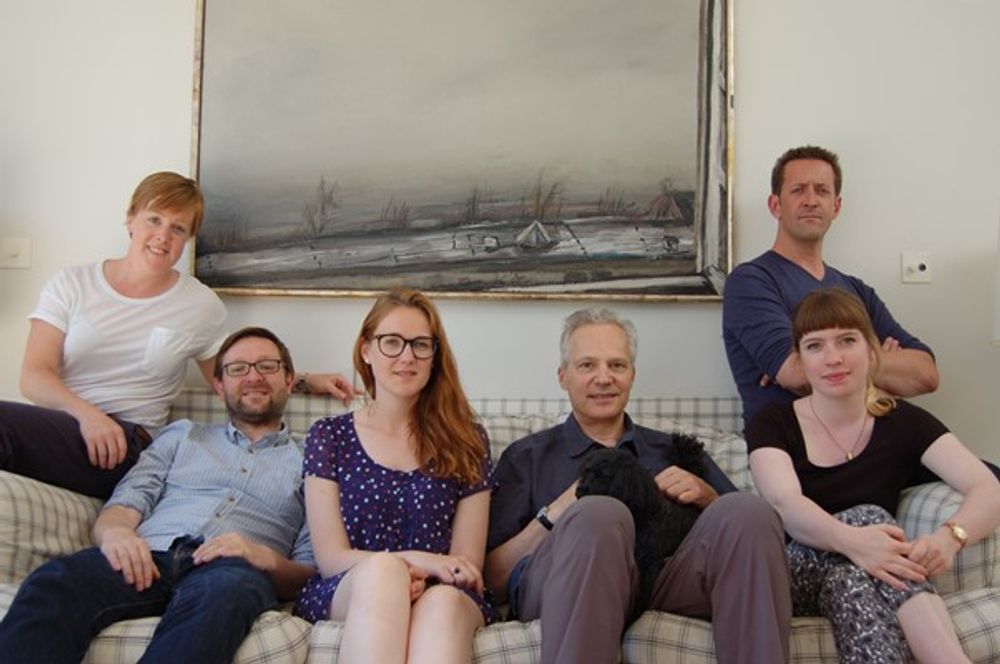
Sebastian Thomas (3rd from right) and his team at Howard Ripley – an early adopter of German Pinot Noir in the UK
“Burgundy is still the holy grail, so every Pinot Noir is measured against it, but now the Germans are saying ‘we don’t care’ and they are focusing on what they do best instead”, according to Sebastian Thomas at British importer Howard Ripley Wines, an early champion of German Pinot, “I think we are seeing far greater confidence”.
With many German producers still relative novices when it comes to Pinot Noir, the conference agenda revealed an appetite to share knowledge and learn from other growers, beyond Burgundy, in both the Old World and the New.
“It’s important to remember that while there are experienced producers, others are just starting out, they are experimenting,” says Thomas, “the best are making distinctive wines that are not Burgundian, they have a distinct style, but they are right up there in terms of quality.”
Getting the Pinot genetics right
Appropriately, for the country that first demonstrated clonal selection to the world almost one hundred years ago, there was a discussion on its merits, versus massal.
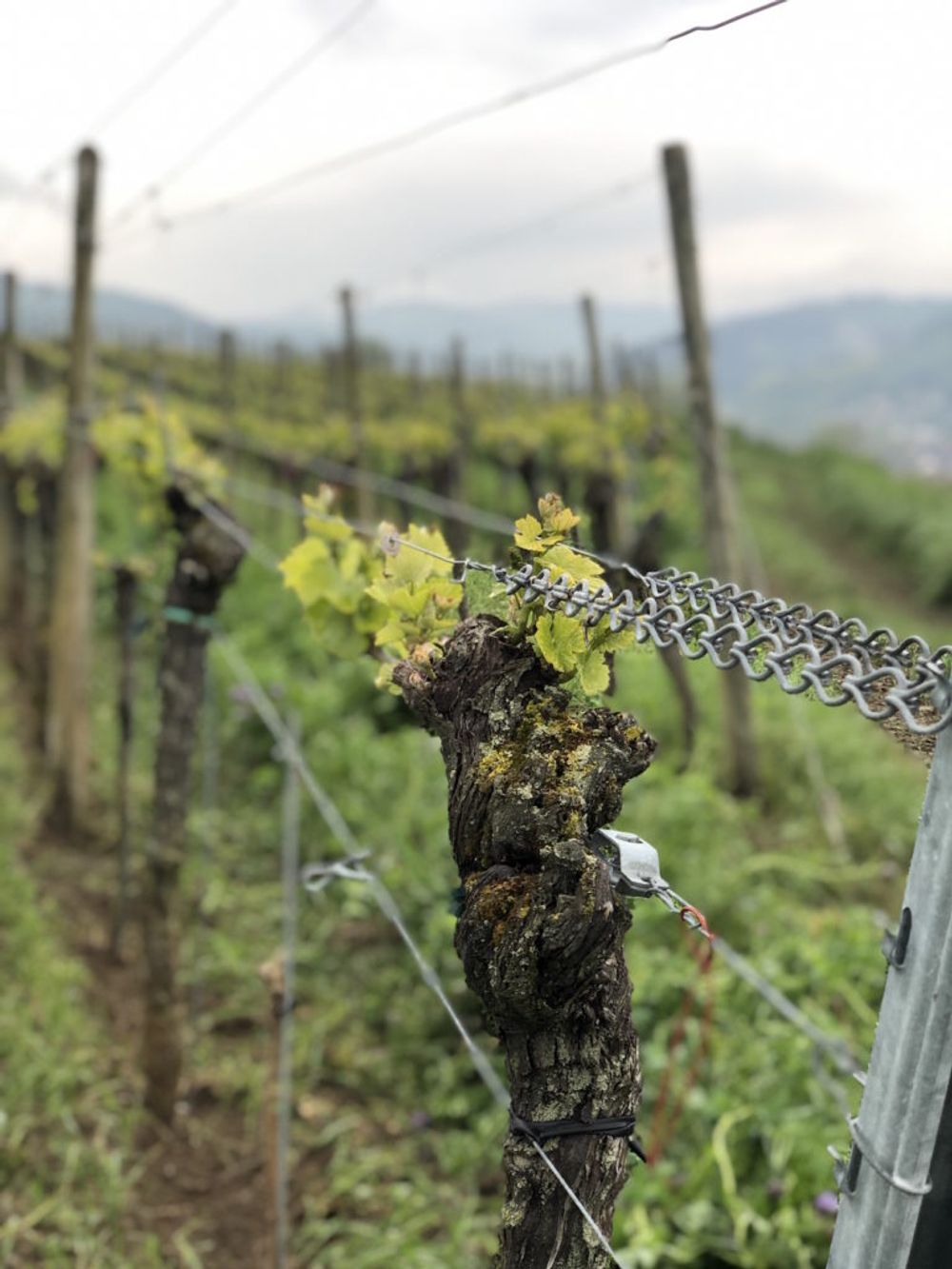
Renowned oenologist Pierre-Marie Guillaume, a Burgundian, outlined the lengthy processes involved in the development of a successful clone, warning that “the French will always tell you that terroir is important. It is, but this is more important. If you have the wrong genetics in a fantastic place, you will not produce good wine.”
Mosel producer and nursery owner Nik Weis countered that the process had its limitations. “Clonal selection can lead to wines that express only varietal character, rather than terroir. We need to think about variation and complexity. Massal selection is important to achieve that,” adding, “we have turned certain clones into an extreme.”
Weis asserted that German Pinot Noir was now “a benchmark on its own”, a claim supported by a tasting session that sought to compare a range of German examples, from Baden, Pfalz and Rheinhessen with others from Switzerland and Burgundy.
Germany is Europe’s largest market for organic and biodynamic produce, with the teachings of Rudolf Steiner, an Austrian, keenly followed and a third of Demeter’s certified members based in the country. Delegates were urged to consider the growth of the market for biodynamic wine, the premium commanded by such products and the opportunity for German Pinot Noir to define itself.
Bavarian wine merchant Martin Kössler urged delegates to press their “reset button”, suggesting “our customers want this, so be prepared to change.”
Alsace’s Olivier Humbrecht MW, of Zind Humbrecht, talked of the importance of soil quality: “at school I learnt that you had to feed the plant. Now, I know that you have to feed the soil,” telling delegates that his biodynamic journey began when he released how much more productive his compost became with manure from biodynamic-farmed cattle. “The compost was a success, so I thought we should convert the vineyards too,” he explained.
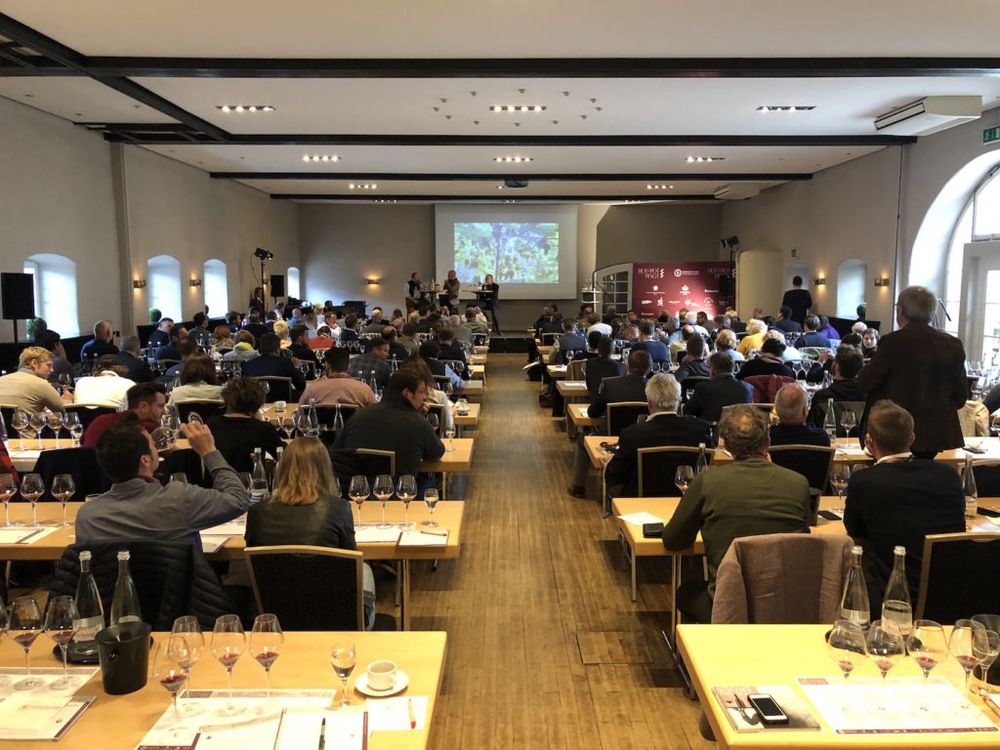
The Hotspot Pinot conference, Freiburg, May 2019
It is fair to report that there were some sceptical faces in the room as Californian Jasmine Hirsch, of Sonoma’s Hirsch Vineyards, told delegates that vines were “individuals”, with biodynamic methods resulting in “balance, that makes vines naturally more resilient,” adding that young people strive to work for Hirsch, despite it being “in the middle of nowhere,” because of its approach to viticulture.
Baden producer Klaus Vorgrimmler reassured his peers that where there is muck there is brass, with his biodynamic “holistic approach” resulting in “slower growth, less energy, lower yields, but far fewer problems”.
Other topics, not delivered in English, included the future of co-operative wineries, and a guest appearance for Chardonnay in a session about reductive winemaking. Entitled ‘pyrotechnics or popcorn’, it included a fantastic 2016 Malterdinger Bienenberg Chardonnay from Weingut Bernhard Huber, one of the stand out wines of the entire event that absolutely made it worth sitting through 90 minutes of a discussion in German (which your correspondent sadly does not speak).
As for the future, delegates departed in buoyant mood, reflecting the sense of growing confidence. “We are seeing a huge interest in German Pinot Noir from the trade,” Thomas says, “they have filled the price gap left by Burgundy, the wines are brilliant for ‘by the glass’, and they offer sensational value.”
David Kermode is a wine presenter, writer, broadcaster and judge with his own website vinosaurus.co.uk
